 Headline News
Headline News

Bill Clinton arrives in dead of night
 (CNS): The 42nd president of the United States, Bill Clinton, is now securely hidden at the Ritz Carlton-Grand, Cayman having arrived in the Cayman Islands under the cover of darkness in the early hours of Sunday morning. The private jet carrying the former leader of the United States arrived at the Owen Roberts International Airport at around 1:30am under tight security. Local armed officers along with the secret service escorted Clinton’s motorcade to the Ritz, where he is believed to be staying and where he will be giving a lecture on Monday night at a $1,500 per ticket dinner. Although the organizers of the event have given little away, the former president will be talking on the theme of common humanity. Although described as a fundraiser in some quarters, it is not clear if it is for charity. (Photos Dennie Warren Jr).
(CNS): The 42nd president of the United States, Bill Clinton, is now securely hidden at the Ritz Carlton-Grand, Cayman having arrived in the Cayman Islands under the cover of darkness in the early hours of Sunday morning. The private jet carrying the former leader of the United States arrived at the Owen Roberts International Airport at around 1:30am under tight security. Local armed officers along with the secret service escorted Clinton’s motorcade to the Ritz, where he is believed to be staying and where he will be giving a lecture on Monday night at a $1,500 per ticket dinner. Although the organizers of the event have given little away, the former president will be talking on the theme of common humanity. Although described as a fundraiser in some quarters, it is not clear if it is for charity. (Photos Dennie Warren Jr).
The event is being organised by Whisky Productions but the promoters have maintained a low profile. It is understood that Clinton will not attend the pre-dinner cocktail party or the dinner, but will appear at the allotted time for the lecture.
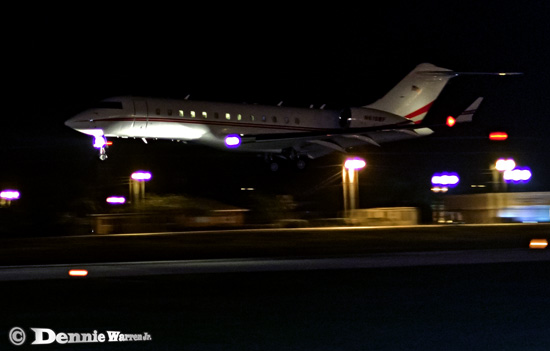 According to the release from Whisky, Clinton will be presenting "Embracing our common humanity", a lecture he gave to an audience in Jamaica last October.
According to the release from Whisky, Clinton will be presenting "Embracing our common humanity", a lecture he gave to an audience in Jamaica last October.
Clinton, who served two terms as president, was a controversial but popular leader. He was infamously impeached by the House of Representatives on charges of perjury and obstruction of justice on 19 19 December 1998 but was acquitted by the Senate in the February of the following year. Two other impeachment articles, a second perjury charge and a chargeof abuse of power, failed in the House. The charges arose from the Monica Lewinsky scandal and the Paula Jones lawsuit.
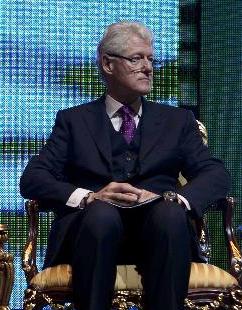 Clinton, whose presidency has been defined by its mix of conservatism and liberalism (he is now said to be very close to the 43 president George Bush), now speaks on a diversity of issues, such as HIV aids, climate change, sustainable development, the challenges of globalization and many other progressive topics.
Clinton, whose presidency has been defined by its mix of conservatism and liberalism (he is now said to be very close to the 43 president George Bush), now speaks on a diversity of issues, such as HIV aids, climate change, sustainable development, the challenges of globalization and many other progressive topics.
These days Clinton travels the world giving lectures on talks and last week was in Nigeria with Arnold Schwarzenegger as the guest of honour at the African nation’s good governance awards.
Mac denies LA rules violation
(CNS): The disagreement between the country’s leader and the independent representative for North Side escalated further this weekend when the Premier’s Office issued a statement Friday from McKeeva Bush denying that he was in breach of Standing Orders over Finance Committee, as stated by Ezzard Miller on Monday. In response to an article posted on CNS and a statement released by the North Side MLA, who had pointed out that Finance Committee,of which the premier is chair, was one of several Legislative Assembly committees that had failed to meet in accordance with the House rules since the UDP came to office. Bush “categorically” stated that Finance Committee was not in violation of Standing Orders or the Constitution.
He said Miller was misquoting the provisions of the constitution and said the Finance
Committee had met three times since he became the chairman — on the 21st, 22nd and 24th of June 2010. These sittings related to appropriations for government’s budgets since taking office.
“Beyond a shadow of a doubt, since my chairmanship of Finance Committee began, the committee has satisfied the requirement of Standing Order 81 and of Section 83(2) of the Constitution and there has therefore been no violation of the Standing Orders or the Constitution by the Finance Committee," he said.
However, the committee has not met so far outside of the budget process. During recent PAC meetings staff from the Auditor General’s Office and senior staff from the treasury department, as well as Miller, have pointed to the need for Finance Committee to meet to reconcile extra executive spending among other things in the financial years since the UDP government came to office.
The premier said in his statement that he would be bringing the Appropriation (July2011 to June 2012) Bill — the government’s budget for the next financial year — along with the detailed budget documents to the Legislative Assembly in May. He said a Finance Committee meeting would automatically follow the debate and he would then seek approval for the emergency expenditure items that the Cabinet approved under Section 11(5) of the Public Management & Finance Law (2010 Revision).
“It is clear that Finance Committee meets when necessary and it deals with all business referred to the committee by the House or by the governor,” Bush claimed. “Sadly, it is obvious that the elected member for North Side is being mischievous and disingenuous when he says that Finance Committee is in violation of the Legislative Assembly’s Standing Orders and the constitution.”
The premier’s statement comes in the wake of comments made by Miller this week regarding his resignation from the PAC because of the failure of the members to turn up and do the work, preventing him from having a quorum. Miller also revealed that a number of other committees, including the committee which oversees the register of MLAs’ business interests and the committee that is supposed to examine the work of Office of the Complaints Commissioner, had not met in almost two years.
See premier’s full statement below.

Robbery victim fights back
 (CNS): Two men who attempted to rob a man on his own doorstep ran off when the victim decided to fight back instead of complying with their demands. The police reported this morning that around 8:40pm last night (Thursday 24 March) a 47-year-old man returned home to his residence in Mahogany Way, Prospect. As he was opening the door of the house he was suddenly confronted by two hooded men, one of whom was in possession of what appeared to be a firearm. The suspects threatened the man, demanded cash and told him to lie down on the ground. The man grabbed hold of the gun, causing one of the suspects to stumble – both hooded men then ran off empty handed.
(CNS): Two men who attempted to rob a man on his own doorstep ran off when the victim decided to fight back instead of complying with their demands. The police reported this morning that around 8:40pm last night (Thursday 24 March) a 47-year-old man returned home to his residence in Mahogany Way, Prospect. As he was opening the door of the house he was suddenly confronted by two hooded men, one of whom was in possession of what appeared to be a firearm. The suspects threatened the man, demanded cash and told him to lie down on the ground. The man grabbed hold of the gun, causing one of the suspects to stumble – both hooded men then ran off empty handed.
The man was not injured in the incident and no shots were fired, the RCIPS said.
The suspects were both wearing dark coloured clothing, gloves and had their heads covered by hoods. One was around 5’7” in height, the other 6’0”.
Anyone who was in the area at the relevant time and saw anything suspicious or the suspects running off from the scene should contact George Town CID on 949-4222 or the confidential Crime Stoppers tip-line 800-8477 (TIPS).
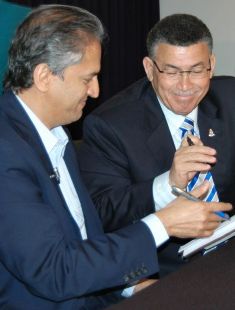
Shetty deal to be extended
 (CNS): The agreement between the Cayman government and the Indian heart surgeon, Dr Devi Shetty, for a proposed health city expires in two weeks time but the Shetty team says both sides want it to be extended. The deal signed 12 months ago outlined the concessions and legislative changes government would make to facilitate the medical development. However, because those changes have taken longer than expected the agreement is about to end before all the requirements are met. But with changes now made to the health practitioner’s law and a cap placed on medical damages, a spokesperson said this paves the way for the deal to be extended and the first phase of the project could break ground before the end of this year.
(CNS): The agreement between the Cayman government and the Indian heart surgeon, Dr Devi Shetty, for a proposed health city expires in two weeks time but the Shetty team says both sides want it to be extended. The deal signed 12 months ago outlined the concessions and legislative changes government would make to facilitate the medical development. However, because those changes have taken longer than expected the agreement is about to end before all the requirements are met. But with changes now made to the health practitioner’s law and a cap placed on medical damages, a spokesperson said this paves the way for the deal to be extended and the first phase of the project could break ground before the end of this year.
Shetty will be going ahead with the medical tourism project, which is aimed at the North American health market and will shortly reveal more detailed plans of the proposed hospital, Gene Thompson told CNS on Thursday.
Thompson, who has been working with Shetty since the renowned heart surgeon began looking at the Cayman Islands as a possible location for his health city, said the legal changes turned out to be a complex process and took longer than anyone originally anticipated.
He explained that with two of the laws that Dr Shetty needed to go ahead with the project already on the statute books and the third, dealing with organ donation and transplantation, in the works, the doctor was satisfied that the spirit of the original agreement was being met. Thompson said the relationship between the team and government was going very well and the health ministry was fully engaged with the project.
Both the Shetty team and government had learned a lot over the last twelve months, Thompson explained, and through no fault any government department or anyone the whole process did not go as quickly as people had hoped.
“Dr Shetty is very committed to this project and we are confident that both sides are now comfortable about extending the agreement,” Thompson said. “The next step will be to present more specific plans to the community about the first phase, which will be a 140-150 bed facility.”
The local representative revealed that there will be another round of public presentations shortly that will go into much more details of the project itself. With Dr Shetty’s first presentations focusing mostly on the philosophy and intent behind the medical complex, the next step is to be more specific about the actual plans for the first phase of the hospital.
“We are now putting together a project team that will begin working on this first phase of the actual development,” Thompson said, adding that there was lots of work to be done. Thompson did not reveal the location of the development as he said it was still an open question with no final decision yet made, and because of the commercial realities of that he would not be drawn on the most likely location.
However, Thompson was emphatic that the project was going ahead, despite the delays, and that Dr Shetty was totally committed to beginning the development. “No one is walking away from this,” Thompson added.
The original agreement signed last April outlined the duty concessions on medical equipment that government was prepared to give, the discounted immigration fees and the necessary legislative changes. In return Dr Shetty has committed to building a large scale medical tourism facility, medical school, and assisted-living senior’s residence on 500 acres over a ten year period which will represent an investment of some $2 billion if the entire project goes ahead.
Dr Shetty has said that he believes the Cayman Islands is the ideal location to tap into the huge and growing medical tourism potential in the United States, where health care is increasingly expensive and inaccessible. The doctor says he can offer top quality medical care at a fraction of the cost, modelled on his Narayana medical facility in his native India.
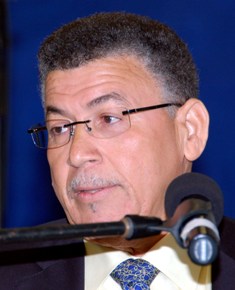
Headcount too low, says Mac
 (CNS): The Cayman Islands premier has said that the early results of the national census from the Economics and Statistics Office show a declining instead of increasing trend in the population. Despite the growth in numbers since the island-wide headcount in 1999, McKeeva Bush said the figure of 54,878 was lower than the population estimates received back in 2008, which had projected a total of just over 57,000 with the expectation that the population would continue to grow. He said that government had to address the decline as he said a sustainable increasing population was vital for economic growth.
(CNS): The Cayman Islands premier has said that the early results of the national census from the Economics and Statistics Office show a declining instead of increasing trend in the population. Despite the growth in numbers since the island-wide headcount in 1999, McKeeva Bush said the figure of 54,878 was lower than the population estimates received back in 2008, which had projected a total of just over 57,000 with the expectation that the population would continue to grow. He said that government had to address the decline as he said a sustainable increasing population was vital for economic growth.
“This population downtrend has the potential to negatively impact local economic activity and is thus a matter of serious concern, one which needs immediate action,” the premier said in a statement released on Thursday. “The new census results accordingly compel government to continue pushing for policies that will promote sustainable population growth in the Cayman Islands. While we do not want a runaway population spiral, what we do need is sustainable growth that can spur healthy local economic growth.”
The preliminary population results from the ESO’s two month-long census exercise were revealed to the public earlier this week and also revealed that population growth among the districts is uneven.
“We have a large gap in numbers for George Town, compared to West Bay and Bodden Town, the two other population-dense districts,” Bush stated. “But we have to maintain sustainable growth in all our districts. Government considers this a vital requirement for progress and we want to address this actively.”
The premier also pointed to the relatively slow population growth in the Sister Islands, which he said must also be addressed.
“Facilitating greater economic activity in Cayman Brac and Little Cayman therefore becomes vital to achieve growth in keeping with the environmental concerns that characterise those islands,” he said. “We don’t want some districts to be left behind in Cayman’s socio-economic development process; otherwise our progress will not be meaningful.”
The full census report, expected in the last quarter of this year, will provide in-depth information on each district’s socio-economic and demographic dynamics. “We need those figures in order to take focused action,” Bush revealed, adding that the data would guide his government’s response, not only to the issues that exist at the district level, but to “promote balanced growth across the country”.
The results revealed that Bodden Town was the fastest growing district in the Cayman Islands. All the other districts have experienced a gradual decline in their share of the population over the past 30 years, except George Town, which had experienced a gradual increase.
Though the population is not as large as the premier would like it to be, the ESO report reveals that if the islands’ population were to continue growing at the rate it has since the last census, it would double in size over the next two decades.

Tech zone to bring 10,000 jobs
 (CNS): The private developers of the proposed technical and science zone say that if the project goes ahead it could create as many as 10,000 jobs in the Cayman Islands and generate some $500 milllion in revenue. According to an economic impact study by KPMG, the Cayman Enterprise City (CEC), a Special Economic Zone which will be constructed somewhere on Grand Cayman by Hon Developments, will contribute some 15 percent of the country’s GDP and over a three period and eventually generate some 5,000 jobs inside the park and a further 4,800 jobs outside the zone. At least 800 of those jobs, the developer said, would be created within the first year.
(CNS): The private developers of the proposed technical and science zone say that if the project goes ahead it could create as many as 10,000 jobs in the Cayman Islands and generate some $500 milllion in revenue. According to an economic impact study by KPMG, the Cayman Enterprise City (CEC), a Special Economic Zone which will be constructed somewhere on Grand Cayman by Hon Developments, will contribute some 15 percent of the country’s GDP and over a three period and eventually generate some 5,000 jobs inside the park and a further 4,800 jobs outside the zone. At least 800 of those jobs, the developer said, would be created within the first year.
“New exciting careers will be created for Caymanians in the fields of IT, science, media, commodities, commerce and academia,” said Jason Blick from Hon and Chief Operating Officer for the CEC. “CEC is an entirely privately funded project and there is no investment being sought from the Cayman Islands Government.”
The proposed development was announced at the CBO conference in January, when the premier signed an MOU with the developers paving the way for discussions about concessions and specific legislation that would facilitate the creation of the commercial area.
Although the site for this special science and technology zone has not yet been revealed or which international firms or anchor tenants, if any, have agreed to move in once the CEC is completed, the developers say that it will host growing enterprises as well as giant global brands.
The Hon team will be visiting Dubai in the United Arab Emirates next week along with the premier to meet officials there to propose a working relationship that would benefit both Cayman and the UAE when Cayman Enterprise City becomes reality, Hon said in a release on Wednesday. McKeeva Bush is scheduled to meet the Hon team to lead the delegation to Dubai after his visit to Venice to examine a damn built by GLF.
Despite the unrest in the Arab world, reports from Bloomberg reveal that Dubai remains a safe haven as its financial markets continued climbing in the face of the regional problems this week. Home to a number of free trade specialist zones and currently planning an aerospace enterprise zone, Dubai’s wealth has stemmed from commerce because, despite being in the heart of the Arabian Gulf, the Emirate has no oil resources of its own.
“The achievements of the United Arab Emirates as a pioneer and global leader in the development of the world’s best Special Economic Zones are unprecedented,” said Bush. “We have identified great synergies between our jurisdictions and recognize that working cooperatively for mutual benefit can create enormous opportunities for both countries. As one of the world’s leading financial centres, the Cayman Islands seeks to partner with the best.”
The developers say that Cayman Enterprise City will expand the standard free zone model to offer flexible regulations and better incentives for international companies. The focus they say, will be on science and technology, research and academia, commerce and trade. Cayman Enterprise City will be the largest Technology, Communications and Commerce cluster in the Caribbean region.
“This visit to the UAE is enormously important to Cayman and the CEC project,” said Barry G Hon Chairman of Hon Developments. “One of our primary objectives is to forge relationships with key SEZ stakeholders in the UAE, and communicate the advantages to companies who establish a presence in CEC. Cayman will also benefit greatly from the exchange of information gleaned from this trip.
The developers say they are confident that providing access to clients in the important markets of North America and the emerging giants of South America will facilitate the work of key stakeholders currently in the UAE. Hon said Cayman’s strategic location as a gateway to the Americas and its position as the world’s 6th largest banking centre, will make Cayman Enterprise City appealing to international brands in Europe and the Middle East who wish extend their global reach.
“Having the premier personally reach out to high ranking officials in UAE is an indication of just how dedicated we all are to making Cayman Enterprise City a reality, Blick stated. “Partnerships with successfully established SEZs such as those within the UAE are crucial to CEC’s success.”
Once Cayman Enterprise City is an operating Special Economic Zone, Hon expects it will quickly create jobs for Caymanians and immediately boost the local economy. CEC will also diversify the Caymanian job market to create opportunities for the next generation.
The developers say they have a 50-year proven track record in successful master planned developments. Cayman Enterprise City will be state-of-the-art campus of innovative and sustainable architecture, designed to complement and respect the local environment. It will include: Cayman Internet Park, Cayman Biotech Park, Cayman Media Park, Cayman Global Commodities Park and Cayman International Academic. There will be no manufacturing or engineering within the park and CEC will create a knowledge based society with no environment consequences and will be an eco-friendly development.
International businesses establishing within the zone will not be permitted to trade in Cayman outside of the zone nor will they be permitted to compete with local businesses. Local Caymanian businesses outside the zone will benefit from new customers and new opportunities will be created for Caymanian entrepreneurs to service those doing business within the zone. Local Caymanian contractors and sub contractors will be sought to build the five campuses which will be developed in three phases comprising 500,000 sq feet of Class A office space.
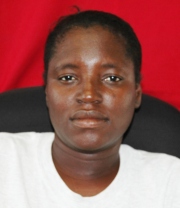
$55k reward for info on Anna
 (CNS): Local business conglomerate dms Organization has added $50,000 to the existing $5,000 reward fund for information leading to the safe return of missing mother of five Anna Evans, or if it turns out that she is the victim of a crime, the conviction of those involved. Don Seymour, president of dms, made the announcement on Wednesday afternoon from his head office in George Town in the presence of Anna’s family some eight weeks since she disappeared from the George Town landfill, where she worked. Stating that he wanted to show some support for the family in their struggle, Seymour said Anna was a hard working mother from the community and the money may motivate people who have so far remained silent to come forward.
(CNS): Local business conglomerate dms Organization has added $50,000 to the existing $5,000 reward fund for information leading to the safe return of missing mother of five Anna Evans, or if it turns out that she is the victim of a crime, the conviction of those involved. Don Seymour, president of dms, made the announcement on Wednesday afternoon from his head office in George Town in the presence of Anna’s family some eight weeks since she disappeared from the George Town landfill, where she worked. Stating that he wanted to show some support for the family in their struggle, Seymour said Anna was a hard working mother from the community and the money may motivate people who have so far remained silent to come forward.
He said that a website www.findannaevans.ky sponsored by dms had also been created to focus attention on the continued search, which includes the police hotline and details of Anna’s disappearance on 27 January.
“Anna is from this community, she has five kids and worked every day to provide for them, she is a valued person, civil servant and Caymanian. We want to try and help find her and we want her to be appropriately recognised,” Seymour said. “Because of the enormous efforts the family have made not to give up I hope people will help.”
He noted that if the worst had happened and a crime had been committed the family still needed answers and justice for Anna.
Struggling to contain their emotions and thanking Seymour for the reward, Anna’s family spoke of the difficulties of not knowing what has happened to their loved one. Anna’s sister, Noreen, who is looking after her children, spoke of how hard it is to explain to them that their mother is not home and that they do not know where she is.
The family said they were convinced that someone saw something that day but for whatever reason they are afraid to speak out. Anna’s family all said that they believed that Seymour’s generous support may help to persuade those people who know something to come forward and help in some way, even if they do so via the crime stoppers anonymous tips line 800 TIPS (8477).
So far no calls have been made to the enquiry hotline on 526-0911 but the family said they remained hopeful that this reward may lead to someone making that first call with important information, even this evening as the news broke about the $50K that had been added to the reward fund of $5000, which the family had collected so far.
Although no members of the RCIPS were present at the press call to announce the reward, Anna’s sister reported that the police were keeping the family updated and that the search was not over. The police are still hunting for Anna and continue to follow up on statements and information that has been collected so far.
With Anna’s 38th birthday just a few weeks away on 4 April, the family said they were still hopeful that she may be returned to them to celebrate, but while they all hoped for the best, they said they were also prepared for the worst as they spoke of the anguish of not knowing. “There is someone out there that knows something and the reward could make that someone come forward,” the family echoed.
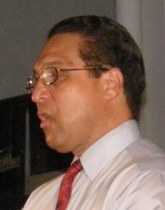
Opposition pushes to be heard
 (CNS): The leader of the opposition was doing all he could in the Legislative Assembly last week to provoke a debate over the situation surrounding the Public Accounts Committee but was blocked by the government and the speaker. Despite the increasing difficulty the opposition faces in getting the subjects it feels are important on the floor of the country’s parliament, Alden McLaughlin says he intends to “push and shove” and do “all it takes” to ensure the opposition participates and is not merely a silent observer to the actions of government. Efforts by McLaughlin to use Standing Orders to force the government to address the PAC chairmanship may have failed but not for want of trying.
(CNS): The leader of the opposition was doing all he could in the Legislative Assembly last week to provoke a debate over the situation surrounding the Public Accounts Committee but was blocked by the government and the speaker. Despite the increasing difficulty the opposition faces in getting the subjects it feels are important on the floor of the country’s parliament, Alden McLaughlin says he intends to “push and shove” and do “all it takes” to ensure the opposition participates and is not merely a silent observer to the actions of government. Efforts by McLaughlin to use Standing Orders to force the government to address the PAC chairmanship may have failed but not for want of trying.
Following the resignation of Ezzard Miller from the Public Accounts Committee and with no sign of the government placing the vacancy problem on the agenda during Thursday’s sitting of the Legislative Assembly, McLaughlin wrote to the speaker ahead of the opening. He raised his concerns in the correspondence that government had not placed what he considered to be an urgent matter on the order paper.
Although the premier did make a statement criticising Miller over the resignation and comments he had made in an article on CNS, there was no debate as the rules of the LA prohibit the opposition from responding to government statements, other than questions of clarity.
With no apparent intention by government to tackle the problems which had led to Miller’s resignation to allow PAC to continue its business, McLaughlin sought to use an adjournment debate to provoke the House into a discussion of what needed to happen over the future of the committee.
In his letter to the speaker the opposition leader described the PAC as “crucial” in its “function as the watchdog of the public purse”, and that Miller’s frustrations over not being able to get a quorum had led to his resignation.
“It should therefore be obvious to the government that it is not only necessary to fill the vacant chairmanship position, but also to address the issue of the attendance of members and the quorum of the committee,” the leader of the opposition wrote in his correspondence to Mary Lawrence. “These are issues of urgent national importance and they ought to be addressed at the earliest possible opportunity, that being today’s sitting of the House.”
McLaughlin said he wished to raise the issue on a motion to adjourn under Standing Order 11, which says any member is entitled to move a motion between two items of business for the purpose of debating an important matter unless the speaker considers it an abuse of the rules. The goal of such a motion is not to adjourn the House but it is one of the few ways opposition members can focus attention on a specific issue which government is not addressing and create a debate.
Despite making it clear in his letter the spirit and intention of the move when he attempted to bring the motion to the floor, the emphatic objections from government set off a heated dispute across the floor as the premier and his team fought to stop McLaughlin’s efforts.
Members of the government front bench accused McLaughlin of using “tricks” to bring the matter to the floor, despite admitting that it was indeed a critical issue that the government members wereseeking to avoid. McLaughlin denied it was a trick but said it was one of the “few tools available to the opposition” to raise important matters, as was the case in question over PAC and how to deal with the committee’s make up in the future.
However, the wrangling between the government and opposition benches led to the speaker allowing McLaughlin to propose the motion but refusing him the opportunity to speak to it, closing down the debate.
Miller also indicated that he had made a request to the speaker to make a statement to the members regarding the reasons for his resignation but he said he received no response from Lawrence and was also unable to raise the subject on the floor of the parliament.
In his statement the premier said government intends to change the line-up and structure of the committee during the budget sessions, which is currently expected to meet sometime in May. McKeeva Bush has not yet made it clear how he intends to restructure the committee in order to ensure enough members turn up to make a quorum. Nor is it yet clear how the auditor general will now make his reports public or tackle the outstanding public accounts with no legislative committee to report to.
Speaking after the sitting, McLaughlin said he had hoped to suggest increasing the committee from five members to seven — one each from the government and opposition benches– but maintaining the quorum for a meeting at three. He said this would focus government’s attention on the committee because, if Miller was to reconsider and return under those circumstances as chair, it would mean a quorum could always be formed with opposition members, motivating government to make sure at least one of its four representatives would show up.
However, speaking at a press briefing on Monday morning, Miller said he would not return under those circumstances as he felt that the manipulation of the committee was the wrong way and that the rules of parliamentary democracy cannot keep being bent because people are not obeying by them. He said he was still waiting to hear what the premier’s original offer to him would have been before his underlings muddied the water with their accusations.
“I still want to know whichof the three government members of the PAC the premier was offering to remove that he did not feel was doing the job they were elected to do,” Miller pondered.
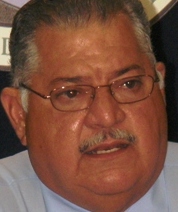
CS mindset slow to change
 (CNS): The entire mindset of the civil service is having to change to accommodate the Public Management and Finance Law but it is a slow process and the Cayman Islands will have to be patient, according to speakers at the UCCI’s conference last week on Leadership, Governance and Empowerment in the Caribbean. The shift from cash-based to accruals-based accounting and the need for civil servants to actually show the goods and services that they are receiving for their money has required a completely new culture of thinking, Kurt Tibbetts, the former leader of government business and opposition member for George Town, said during a presentation on the PMFL
(CNS): The entire mindset of the civil service is having to change to accommodate the Public Management and Finance Law but it is a slow process and the Cayman Islands will have to be patient, according to speakers at the UCCI’s conference last week on Leadership, Governance and Empowerment in the Caribbean. The shift from cash-based to accruals-based accounting and the need for civil servants to actually show the goods and services that they are receiving for their money has required a completely new culture of thinking, Kurt Tibbetts, the former leader of government business and opposition member for George Town, said during a presentation on the PMFL
“Under the old system there was no incentive for civil servants to save,” he said. “They simply used up their allocation before the end of the fiscal year, whether the expenditure was necessary or not.
“Deficient budgets were a common affair. Bills lay hidden in drawers only to reappear months later and the expenditure was rubber stamped by Finance Committee after the event,” he added.
Tibbetts said many of those in government at the time were crying out for change, hence the arrival of the Public Management and Finance Law (2005), which has been subsequently amended, most recently in 2010. However, the key to the success of this law was in its operation and while the Public Management and Finance Law was enacted, sister legislation that would speak to the administration of the law was not.
“The lag time between these two pieces of law has caused many functions of the system to be disjointed,” Tibbetts said. “The human resources side needed to be prepared and understood. This was very important, but it fell by the wayside.”
Tibbetts also said that he had wanted performance-based remuneration to be installed in the civil service at the time the legislation was put in place. “We have not reached a stage whereby civil servants’ remuneration is performance-based and the original concept for this has been watered down in the law,” he noted.
The idea of performance-based rewards had excited Tibbetts because he said it would have produced a competitive spirit among peers and colleagues. “It wasn’t about not paying people. You wouldn’t want them to outshine you!” he said. He went on to say that this new performance-based system was not just about pay but about attitude in the job place as well.
“We wanted the attitude to change. It would not be good enough to say: ’I’m a civil servant and I just need to turn up for work and do no more thannecessary to keep my job’,” he said.
Decentralising the human resources side of the civil service was another important move to keep in check what Tibbetts described as “the alarming growth of personnel in the civil service”.
He talked of the new paradigm shift which no longer tolerated simply hiring an individual for a specific task when there was already sufficient personnel to deal with the task. I’m satisfied that has, or is, changing now and has done so for some time,” he confirmed.
The explosion in numbers of the civil service has caused what Tibbetts termed “a very serious problem”, especially with operating expenditure by government taking up such a large proportion of its overall budget, at around 50 per cent. “It’s difficult to fire people,” he said. “I applaud the deputy governor for his efforts that are taking place now.”
Tibbetts ended his session by saying that it was not all bad and anything was better than the old system of accounting.
“I think it may have been a bit over ambitious to introduce the entire law comprehensively and it should have maybe been introduced in phases,” he conceded. “The success of the system depends on those who work in it and the downturn in the economy has certainly been an eye opener for us all. Everyone is now interested in spending only what they have to.”
Deputy Governor Donovan Ebanks said he was convinced that Cayman was now on the right track but did not feel the civil service was as far along as it ought to be in properly adopting the Public Management and Finance Law.
“We did not strike the right balance between aspirations and resources,” he explained. “It’s not just about the number of bodies we have; it’s about monitoring the mechanics of the system and IT capabilities.”
Ebanks said that there was currently an environment of a willingness within the civil service to look at the progress so far and there have been recent meetings to address issues with the law.
Bodden Town grows 79%
(CNS): The population of Grand Cayman’s historic capital has grown by 79.4% in the last decade, early results from the 2010 census have revealed. Although the district of Bodden Town makes up only 19% of the overall Cayman Islands’ population, its increase since the last census of 4,577 people makes it the fastest growing district in the country. In its preliminary report on the results of the 2010 census the Economics and Statistics Office revealed that the overall population stands at 54,878 residents living in 22,646 households. Although the full results of the census are not expected until October, this first report gives the country’s headcount and population breakdown in the districts.
Of those 54,878residents, 481 are living in institutions such as prisons, dorms or retirement homes. George Town remains the country’s most populated district, accounting for the majority of the entire population with 27,704 people. 11,269 people now live in West Bay, followed by 10,341 people in Bodden Town. There are 1,437 people in North Side, 1,369 in East End and the Sister Islands are home to 2,277 residents.
The report also shows that there are still slightly more women in the country (50.6% of the overall population) than men, and this is the case in all districts except George Town, where 50.8% of the population is male. In Bodden Town, the proportion of females was the highest compared to any other district at 53% of the population — a total of 5477 women live in the district.
Compared to the 1999 census, the country’s overall population increased by 15,377 persons or 39.4 percent, and grew at an average annual rate of three (3) per cent.
“If the population were to continue to grow at this rate, it would double its size by the year 2033,” the ESO report stated. In Bodden Town during the inter-censal period, the average annual rate was 5.3%. leading to a continued increase in the district’s share of the overall population over the past 30 years, from 9.6% in the 1979 census to 19.0% in the 2010 census.
“All the other districts have experienced a gradual decline in their share of the population over the past 30 years, except George Town, which had experienced a gradual increase up to 1999. Although George Town’s share decreased during the 1999/2010 period, it continues to maintain the biggest share of the population,” the report revealed.
The data was collected during the Cayman Islands 2010 Population and Housing Census, which was conducted over the scheduled six-week period starting Census Day, 10 October 2010. Enumerators visited approximately 30,000 dwelling units during that period and were allowed an additional two weeks to revisit households where no contact was made. Some of the dwelling units were vacant units, vacation homes and short-term rental houses.
This preliminary report is based on the cover page of all census questionnaires, where a count of household members was recorded. In summary, there were 22,646 households, whose members were counted during 2010 census. The final census report will be prepared after all information in the questionnaires is edited, verified for consistency, coded, scanned and processed for tabulation. The editing and verification phase is currently on-going. It is expected that the final report will be submitted to Cabinet by October 2011.
See the preliminary report below.